
Negev Coexistence Forum for Civil Equality
פורום דו-קיום בנגב לשוויון אזרחי
منتدى التعايش السلمي في النقب من أجل المساواة المدنية
EU-funded project of NCF & Adalah
Advancing the Rights of Arab Bedouins in the Negev/Naqab

A joint project of the Negev Coexistence Forum for Civil Equality and Adalah| Funded by the European Union
This two-year joint EU-funded project led by Adalah and the Negev Coexistence Forum (NCF) began on 1 October 2018 and will run through 30 September 2020. The project aims to advance the human rights of 240,000 Arab Bedouin citizens of Israel living in the Negev/Naqab, both in unrecognized and recognized villages and towns.
The Bedouin citizens in the Negev/Naqab are the most marginalized sub-group of the Palestinian Arab minority in Israel. They face institutionalized discrimination by the state, including the denial or neglect of basic socio-economic services, and severe violations of their land and housing rights through home demolitions and land confiscations.
Through a combination of legal action, international advocacy and media outreach, community participation, and documentation and publications, Adalah and NCF are working to protect Bedouin communities at risk of forced displacement and to improve their living conditions, including securing access to schools, health clinics, water, public transportation, and more.
Legal Actions
- Petition to Supreme Court: NCF, together with Adalah and nearly a dozen women’s and Bedouin rights organizations, has filed a petition to the Israeli Supreme Court demanding suitable isolation conditions for female Palestinian Bedouin citizens of Israel suffering from COVID-19 in unrecognized villages in the country’s southern Naqab (Negev) region. | Submitted April 2020 | Petition
- Petition to Supreme Court: NCF, together with Adalah filed an urgent petition to the Israeli Supreme Court calling on Israeli authorities to immediately address the needs of Palestinian Bedouin communities the Naqab confronting the threat of the coronavirus by providing testing centers and bolstered emergency ambulance services. | Submitted April 2020 | Petition
- Petition to Supreme Court: NCF, together with Adalah and other partners filed a petition demanding to connect Bedouin students in Naqab to distance-learning system as all schools have been closed due to the coronavirus crisis. | Submitted April 2020 | Petition
- Letter to Israel’s Water Authority: NCF, together with Adalah and other partners, sent a letter to Israel’s Water Authority challenging a discriminatory practice in which the Authority automatically charges Bedouins higher rates – treating them as if they are wasting water – than any other citizens, when they actually have most limited access to water. | Submitted December 2020 |
International Advocacy
- Joint Webinar with the RCUV and the Arab Medical Association in the Negev, on the Embassy representatives and International Organizations on: The Impact of the Coronavirus on the Human Rights of Bedouin Citizens of Israel Living in the Negev/Naqab, 6 May 2020.
- Joint NGO report to the UN Committee on Economic, Social and Cultural Rights |Prior to List of Issues.
- Joint NGO report to the UN Committee on Economic, Social and Cultural Rights | For the Session
- Concluding Observations of the UN Committee on Economic, Social and Cultural Rights
- Joint NGO report to the UN Committee on Elimination of Racial Discrimination | Prior to Session
- Adalah’s report to the UN Committee on Elimination of Racial Discrimination | Prior to Session
- NCF’s report to the UN Committee on Elimination of Racial Discrimination |For the Session
- Concluding Observations of the UN Committee on Elimination of Racial Discrimination
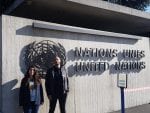
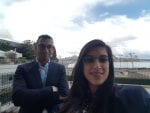
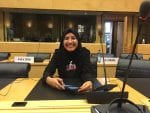
Tours
- Tour with American Embassy representatives in the Negev/Naqab, 14 January 2020
- Tour with International NGOs in the Negev/Naqab, 26 June 2019
- Tour for Eyewitness Palestine in the Negev/Naqab, 27-28 February 2019
- Tour for 14 diplomats in the Negev/Naqab, 16 January 2019
- Adalah, Bimkom, Local Call visiting Ramat Beka, 2 December 2019
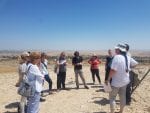
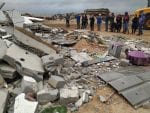
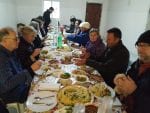
Legal Training
- Training for lawyers on “Land, Housing, and Planning Rights”, with Adalah Attorney Myssana Morany and Bimkom, forthcoming 23 March 2019.
- Photos: Training in Lakiya for lawyers and advanced law students in the Naqab on “Right to Protest / Representing Protestors and Detainees”, with Adalah Coordinator Maria Zahran, Afnan Khalife, Shadi, 19 January 2019 | Program.
Documentation
-
In honor of International Women’s Day, the Negev Coexistence Forum for Civil Equality screened the films of Arab Bedouin women from unrecognized villages in the Negev/Naqab at the Cinematheque in Jerusalem, as part of its “recognized” project.One of the films is by Maryam from the unrecognized village of Tal ʿArād, which tells the story of many Arab Bedouin women who are unable to find work in and out of their villages. Instead of giving up, Maryam decides to build with a farm that will produce enough to feed her family and the rest she sells at the market. In her farm she produces vegetables, fruit, olive oil, soaps and many other goods. Her film is a testament to her resilience and her ability to generate work in an unrecognized village that has no public transportation, no schools, no running water and no electricity. However, Maryam is always optimistic and sums up the film by saying: “It is better than doing nothing”. Maryam participates in the EU documentation workshops.
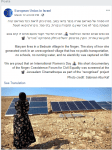

- Documentation Workshops: Working with Arab Bedouin women from unrecognized villages to document human rights violations in their communities through videos and photo stills. On July 15, 2020 a webinar on Covid-19 was held with a group of Arab Bedouin women photographers from unrecognized villages to enable information about the disease, health practices and ways of coping. The virtual meeting was facilitated by Dr. Hadil Alsana.
- Short Video Workshops: Training Arab Bedouin women to communicate with the general public in Israel and abroad through short films.
- Exhibitions: New exhibition at the Multaka-Mifgash Cultural Center of portraits of the Bedouin women. Two documentary videos of 4 Bedouin women were featured at the “Forced from Home” photo exhibition that took place in Photoville Festival in New York, September 2019.
Publications
- Report: House Demolition Report, 2020 | July 2020
- Report: House Demolition Report, 2019 | June 2019
Press Releases
- Adalah and NCF: UN body to Israel: Address key issues regarding Bedouin citizens, discrimination against non-Jews, 1 April 2019.
- Adalah: Bedouin families, human rights groups to Israeli Supreme Court: Stop construction of dangerous phosphate mine in Naqab desert, 25 February 2019.
- Adalah: Israel announces massive forced transfer of Bedouin citizens in Negev, 30 January 2019 | The Strategic Plan of the Bedouin Development Authority (translated from Hebrew).
- Adalah: Disenfranchised: Thousands of Bedouin citizens prevented from voting in upcoming Israeli election, 11 February 2019.
- Adalah: Israeli military industries moving massive testing facility to south, 1,200 Bedouin structures at risk of forced displacement, 2 December 2018.
- Adalah: Adalah demands Israel open high school in unrecognized Bedouin village of Al Zarnouq, 18 November 2018.
Multi-Media
- ‘On the Map’ project maps unrecognized Bedouin villages in the Naqab (Negev) with information and monthly updates in three languages: Arabic, Hebrew and English.
- Photo: Adalah Attorney Myssana Morany debriefs Eyewitness Palestine delegation at the Supreme Court, after hearing on construction of phosphate mine in Al-Fura’a, 27 February 2019.
- Photo: Bedouin citizens gather at Supreme Court for hearing on construction of phosphate mine in Al-Fura’a, 27 February 2019.
- Photos: Photography exhibition for “Negev Day” at the Israeli Knesset, 18 December 2019 | Post 1, Post 2, Post 3.
In the News
- The Jerusalem Post | Bedouins Forced to Destroy Their Own Home in the Negev, by Yasser Okbi/Maariv, 2 July 2019
- Local Call (Hebrew) | Uri Ariel’s farewell party: the uprooting of 36,000 Bedouin from their homes, by Haia Noach, 7 February 2019.
- Al Jazeera English | Demolition highway: Israel plans to force Bedouins from home, by Ben White, 27 January 2019.
- Local Call (Hebrew) | A thousand Bedouin families heard from the media that they’re about to be evicted, Yael Marom, 14 January 2019.
- Local Call (Hebrew) | Uri Ariel is stepping on the ruins of Bedouin homes on his way to the Knesset, by Haia Noach, 5 January 2019.
- Local Call (Hebrew) | Polluting IMI plant leaves Ramat Hasharon and lands on the Bedouins in the Negev, by Yael Marom and Oren Ziv, 30 November 2018.
Follow our work via:
Facebook: Adalah and NCF | Twitter: Adalah and NCF
Instagram: Adalah and NCF | Newsletters: Adalah and NCF
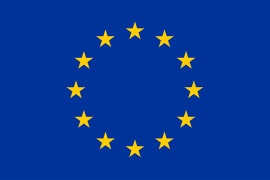
This project is a joint project with Adalah, produced with the financial support of the European Union. It’s contents are the sole responsibility of NCF and Adalah and do not necessarily reflect the views of the European Union













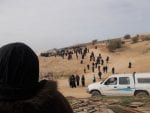

 Youtube
Youtube
 Twitter
Twitter
 Facebook
Facebook